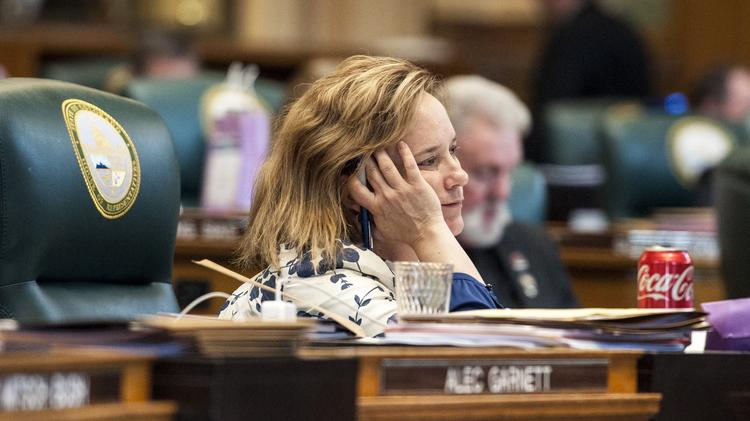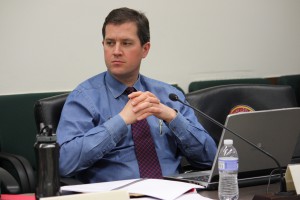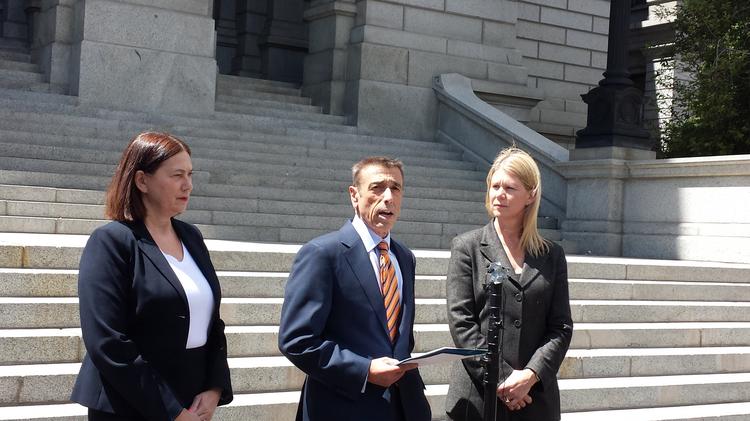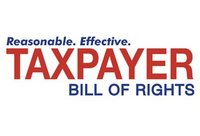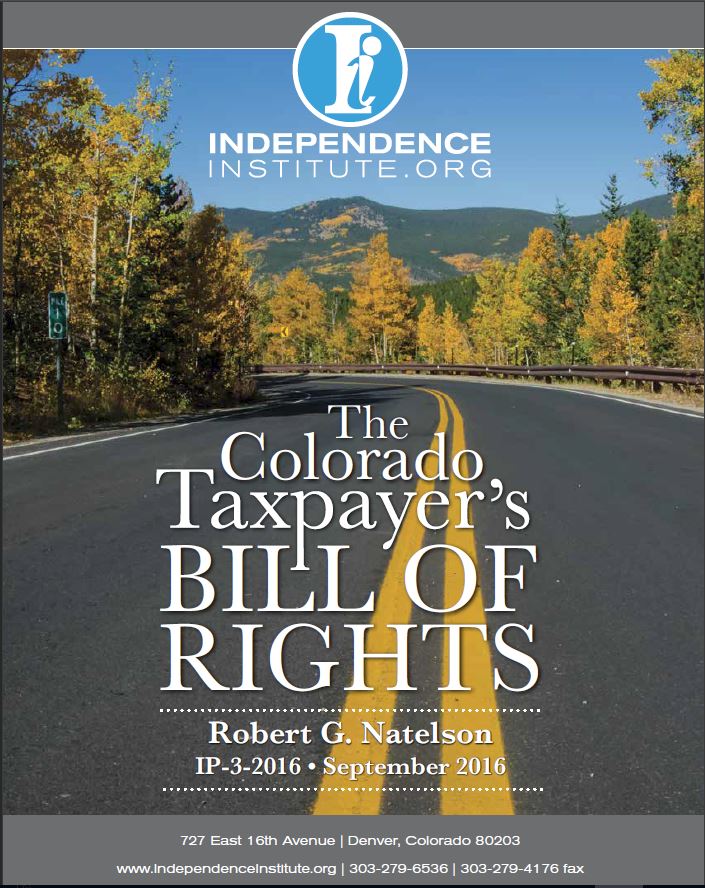“But the biggest agreement of the day came on SB 267, a bill that attempts to meet several of the most crucial needs in Colorado — increased road funding, stabilized funding for rural hospitals, a boost in funding for rural schools — as it also allows for more spending room in future budgets.
Several House Republicans blasted the bill, which largely was crafted by Republican Sen. Jerry Sonnenberg of Sterling. They said it violated the Taxpayer’s Bills of Rights by not reducing the TABOR spending cap by as much as the cost of the roughly $800 million hospital provider fee program that it took out from under the cap and made into an enterprise.
Rep. Tim Leonard, R-Evergreen, said it also violated the legislative requirement to limit all bills to a single subject, even as it seemed to try to fill the needs of many sectors to grow their government funding.
“We work for the people,” Leonard told House members. “We do not work for the recipients of government money waiting for the trough to fill up with taxpayer money.”
But a number of other Republicans, who largely represent rural areas or are considered more moderate members of their caucus, said they backed the measure because the spending recipients needed the boost. They echoed arguments from the Colorado Hospital Association that between six and 12 rural hospitals could close if they lost the money originally projected to be taken from them in order to balance the budget next year.
And several blasted conservative organizations who have criticized them for going along with the plan, saying they are out of touch with constituents’ needs and are making the Legislature a place that is run by fear.
“I know by the time I get back to my desk, the Facebook posts will start. We’ve heard them already: ‘Squish, RINO,’” said Rep. Lois Landgraf, R-Fountain, referring to the acronym some groups give to elected officials they consider to be Republican In Name Only.
“What’s not OK is that by the time I walk out of here, I will have earned myself a primary. But I am happy to be a ‘yes’ vote.”“
Over the course of a turbulent 13-hour final day of the 2017 session Wednesday, the Colorado Legislature passed one the most wide-ranging omnibus spending bills in recent memory and then killed off the vast majority of functions of the Colorado Energy Office.
The 120th day of the first session of the 71st General Assembly began with broad bipartisan support over Senate Bill 267, a measure that saves Colorado hospitals from $528 million in funding cuts, dedicates $1.88 billion to highway projects, pares Medicaid spending and offers a personal property tax credit to businesses for their first $18,000 worth of business equipment.
– LEGISLATURE’S LAST DAY: Click above for Kathleen Lavine’s look at the session’s conclusion.
Despite protests from some Republicans that some of its spending maneuvers were unconstitutional, nearly half of the caucus joined with House Democrats in passing the bill by a 49-16 margin and sending it onto Gov. John Hickenlooper.
But that was about the only kumbaya moment of a day that descended into endless negotiations and then finger-pointing over two issues key to businesses in rural Colorado.
By the time the state House of Representatives adjourned at 9:39 p.m., the Legislature had rolled back a bill to increase funding for rural broadband.
No gas for Energy Office
They also had failed to pass a reauthorization bill for the Colorado Energy Office, meaning that the majority of the office’s functions and its 24-person staff will disappear July 1. Continue reading
